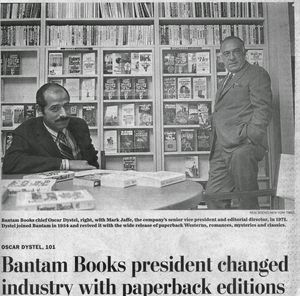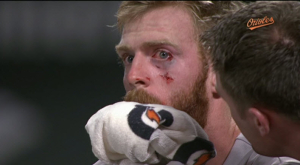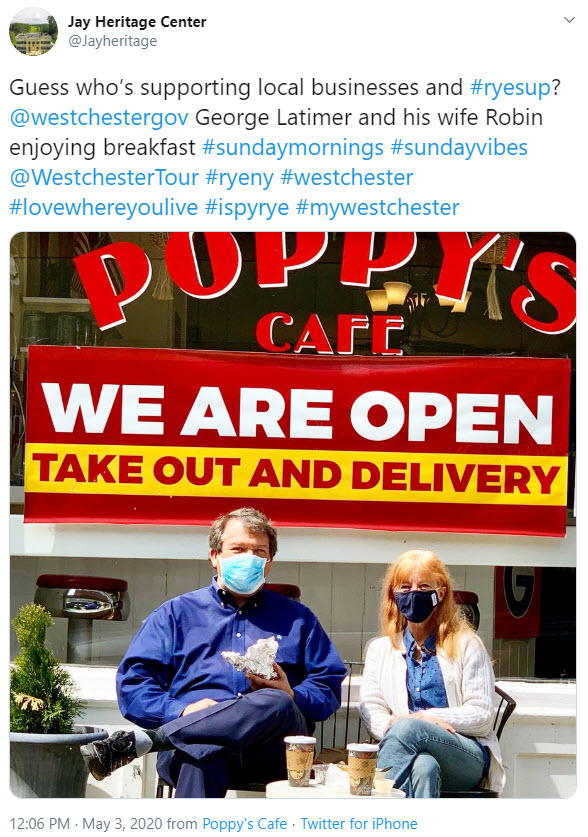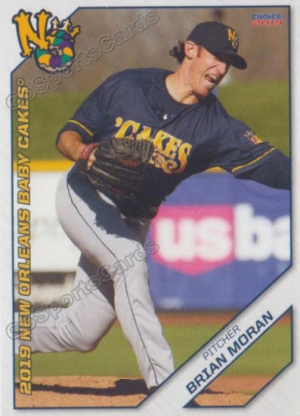Paperback Czar Oscar Dystel of Rye, Dead at 101
Rye resident Oscar Dystel, a publishing executive who innovated the category of paperback best sellers, is dead at 101.
"Oscar Dystel, who combined sharp editorial judgments, shrewd marketing and attention-grabbing covers to propel Bantam Books from the brink of collapse to pre-eminence in paperback publishing after World War II, died on Wednesday at his home in Rye, N.Y. He was 101…
Bantam Books was founded in 1945 to take advantage of new methods that allowed paperbacks to be produced cheaply and of a public eager to pay 25 cents for a book that might have cost $2 as a hardback.
But by the early 1950s, the industry was choking on its own success, having printed mountains more books than the public wanted. More than 175 million copies were piled in warehouses. Bantam was in chaos and had been without a president for two years when Mr. Dystel (rhymes with pistol) was hired…
Bantam was on track to lose more than $500,000 that year. But Mr. Dystel was so confident of Bantam’s future that he demanded a percentage of future profits.
By the end of the next year, Bantam was making a profit, and by the time Mr. Dystel retired as chairman in 1980, its sales exceeded $100 million a year..
And he did what he liked most: He found books with a shot at popularity and sold them vigorously.
An early victory was “Battle Cry,” a 1953 novel by Leon Uris about a group of Marines in the South Pacific during World War II. Bantam and a competitor, Pocket Books, each bid $25,000 for paperback rights, according to Al Silverman in his 2008 book, “The Time of Their Lives: The Golden Age of Great American Book Publishers, Their Editors and Authors.” Mr. Dystel won the deal by promising to send Marines to wholesalers to explain their love of the book…
Mr. Dystel’s idea of the perfect book was one that combined a riveting story, a compelling cover and a hit movie. Bantam paperback sales of Peter Benchley’s “Jaws” (1974) reached three million and had started to wane when the Steven Spielberg movie came out in June 1975. By the end of October, six million more copies had been sold. It was an industry speed record at the time…
One of Mr. Dystel’s boldest initiatives was writing, packaging, printing and delivering books in what was then an incredibly short time. In 1964, Bantam turned out the complete text of the Warren Commission’s report on the assassination of President John F. Kennedy — with several original articles by The New York Times — just 80 hours after the report was released. It sold 1.6 million copies at $1 each (about $7.65 in today’s money)…
…before leaving in 1942 to join the Office of War Information, where he worked on psychological warfare.
He won the Medal of Freedom for planning, editing and distributing millions of leaflets to people in Nazi-occupied southern France. The leaflets were “valuable factors in reducing the enemy’s will to resist,” the citation said.
Mr. Dystel’s maxim for publishing success was as simple as it was difficult: “There’s no disastrous situation in publishing which cannot be saved by the publication of one really big best seller.”"
Read the full obit at NYTimes.com.
Obit at Publisher's Weekly.
Wikipedia on Oscar Dystel.







